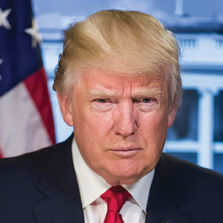
Assessing counterfactuals in which President Donald Trump handled the Covid-19 outbreak in the United States in a different fashion will be the job of historians in the decades hence. We'll never know if a different response from Trump and his administration could have mitigated the devastating, continuing effects of the coronavirus on the business travel industry.
Defenders of the president would note that he did take action to stem the spread while boosting the industry. It was Trump who controversially first banned foreign nationals from entering the United States from China at the end of January. It was Trump who signed the Coronavirus Aid, Relief, and Economic Security Act, boosting industry suppliers, and it was he who discouraged full state and municipal lockdowns. He also advocated for direct aid to the U.S. airline industry and signed off on the Operation Warp Speed vaccine-development effort.
And, as he often noted, it was the Chinese government that failed to keep the coronavirus within its borders or address the outbreak forthrightly, and the World Health Organization which initially determined Covid-19 wasn't spread person to person.
But it was also Trump who repeatedly downplayed the virus, especially in its early days, declined to support edicts to wear masks and failed to ramp up testing capacity in the early days of the pandemic. His clumsy March 11 Oval Office address, in which he suspended entry of foreign nationals who were from or had visited the European Union's Schengen Area, confused many travelers who crowded airports to return home as soon as possible.
Whatever the historical view of Trump's coronavirus legacy, the fact remains that the United States has more positive cases and deaths from Covid-19 than any other country in the world, and its business travel industry, unlike that of some other countries—particularly in the Asia-Pacific region including, ironically, China—remains severely curtailed. U.S. business travelers for the most part can't visit the United Kingdom without quarantining for several days, generally can't enter the European Union under most circumstances, and in nearly all circumstances aren't even allowed to enter Canada.
And while the president may yet wield some further industry influence in the form of a fresh round of financial relief in the waning weeks of his term, a new administration will oversee the country's and industry's recovery, with Trump's tenure arguably undone by his response.